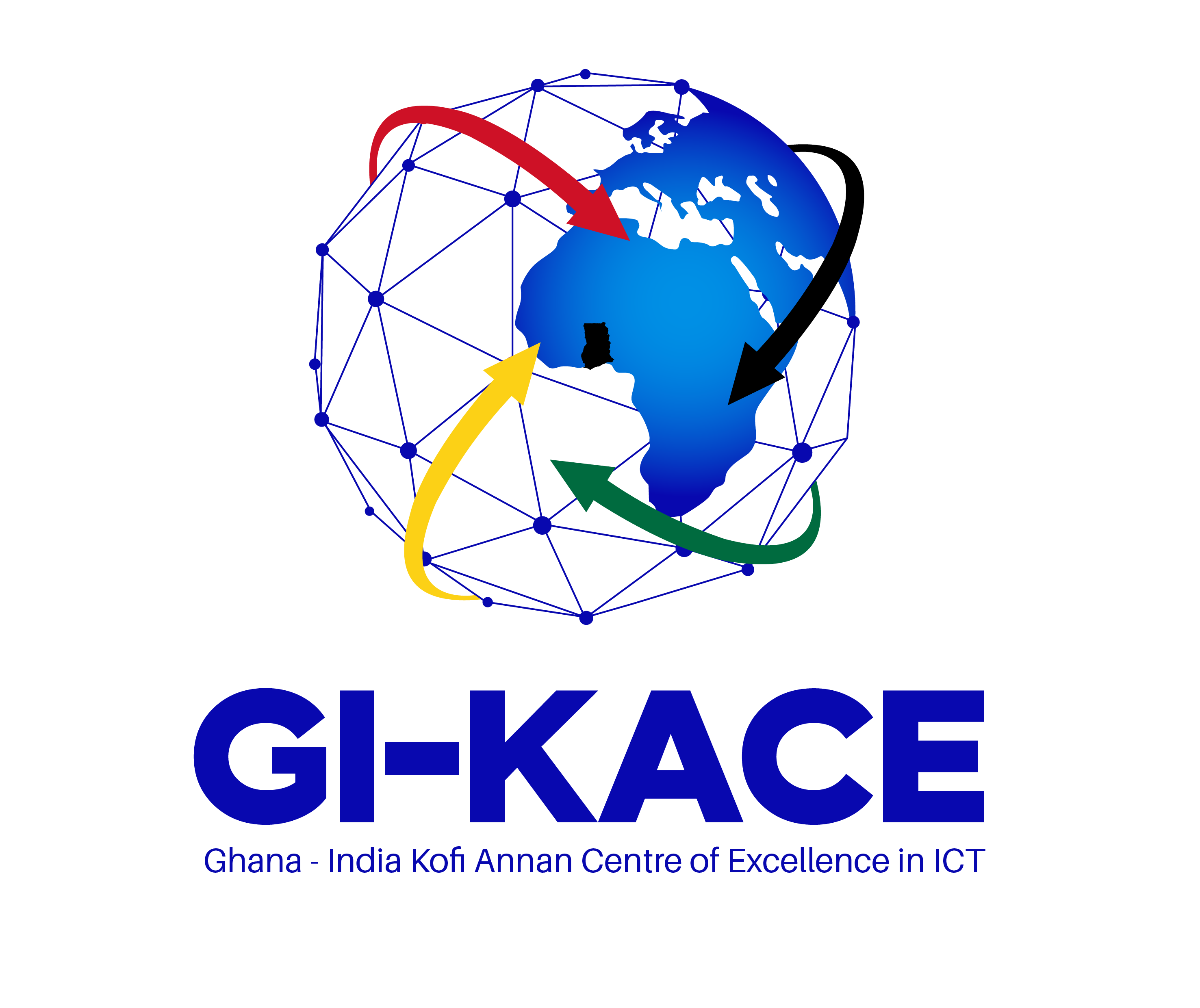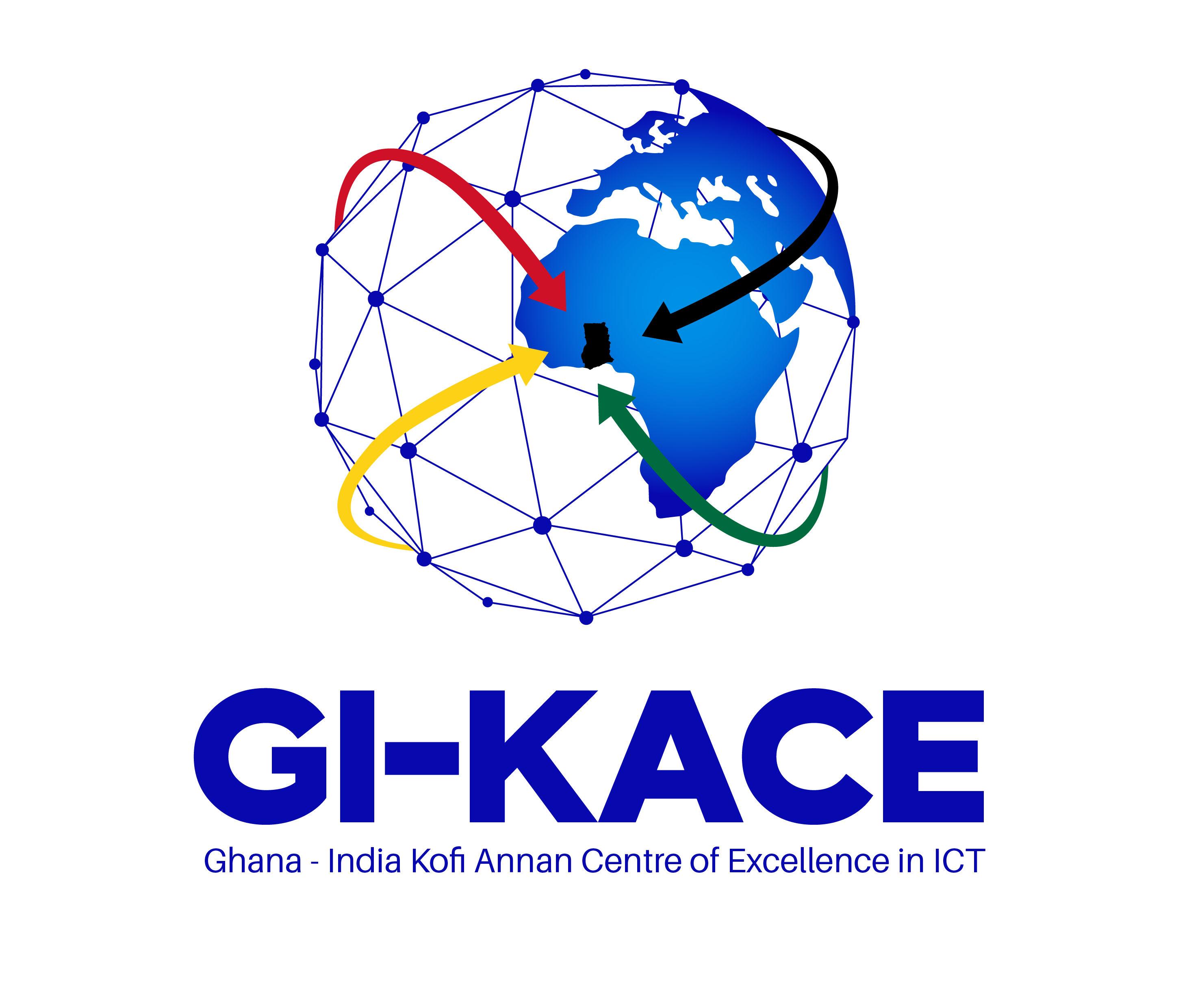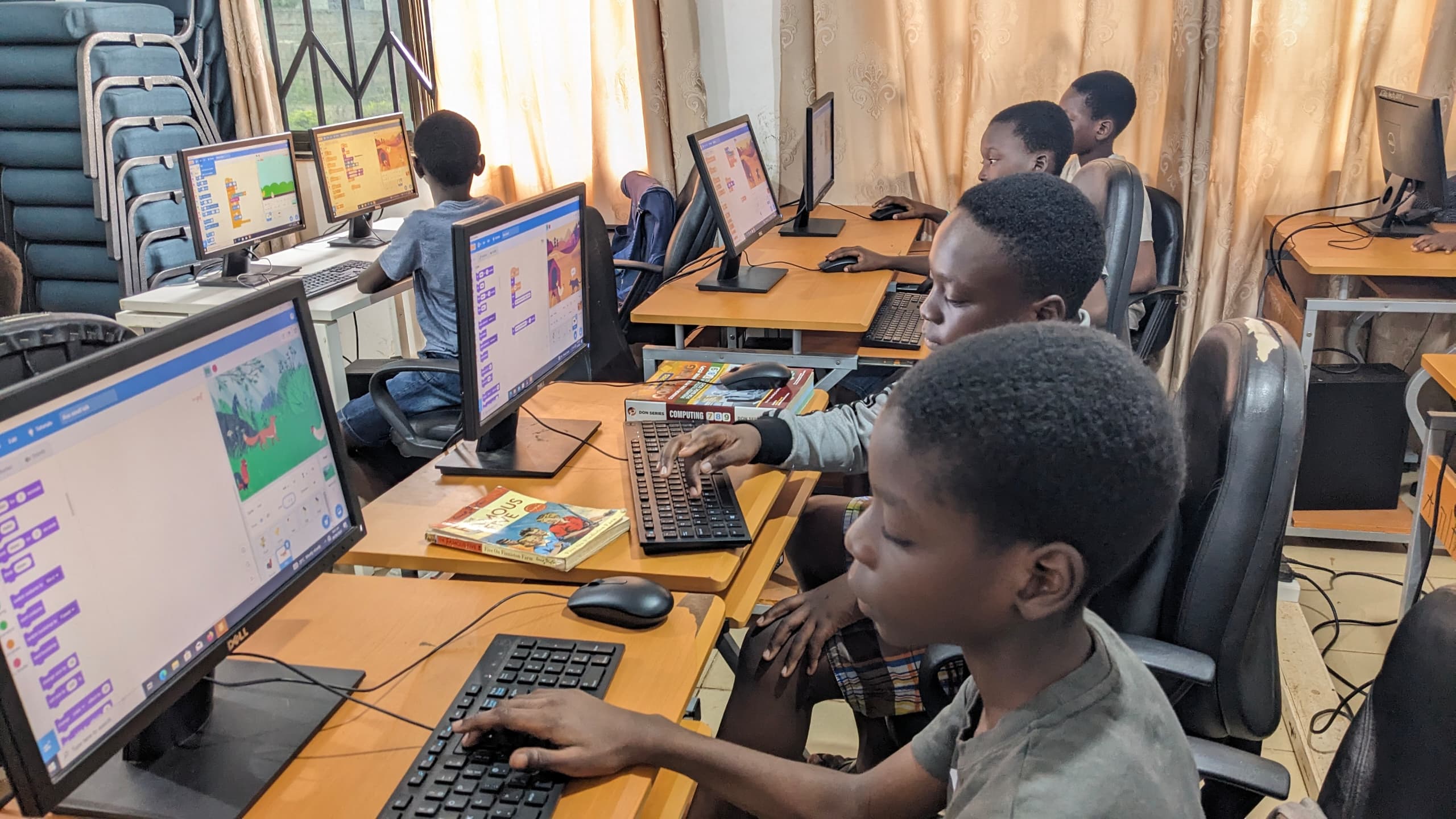The Sunyani Centre of the Ghana-India Kofi Annan Centre of Excellence in ICT (GI-KACE) is training a total of 43 BECE Graduates in Digital Proficiency Programming Basics and 23 Upper Primary Pupils in ‘IT Essentials for Young Minds’
The training event which is scheduled for seven (7) weeks and four (4) weeks respectively is to equip the students with the efficient practical digital skills to have the ability to communicate with computers, create digital solutions, and navigate the ever-evolving tech landscape.
As Ghana takes steps to digitize its economy, the Sunyani Centre of GI-KACE in connection with this agenda, has designed these training programs for the youth to empower them to understand, interact with, and shape the digital world they inhabit which in the end not only prepares them for their future careers, but equips them with a versatile set of skills that foster creativity, problem-solving, and logical thinking.
Digital literacy is an essential skill set for them in today’s classrooms. As technology continues to evolve and has become more incorporated into our daily lives, students need to develop the necessary digital literacy skills to excel in the digital age.
The training package includes some of the most important digital skills such as;
Basic Computer Skills: Students require basic computer skills to operate digital devices such as computers, tablets, and smartphones. This includes familiarity with hardware components, operating systems, and common software applications.
- Internet Navigation and Online Search Abilities: Students should be able to navigate the internet effectively and safely. This involves understanding web browsers, using search engines to find information, evaluating search results, and discerning reliable sources.
- Information Literacy: Students must learn how to evaluate and critically analyze information obtained from digital sources. They should be able to determine the credibility, relevance, and bias of online information to make informed decisions.
- Multimedia Creation and Digital Storytelling: Students benefit from skills in creating multimedia content and digital storytelling. This involves using various tools and platforms to make presentations, videos, podcasts, and other digital projects.
By acquiring these essential digital literacy skills, children are better equipped to engage with digital technologies, explore online resources, and participate actively in the digital world. These skills support their academic pursuits, foster critical thinking, and prepare them for future personal and professional endeavors in the digital age.


